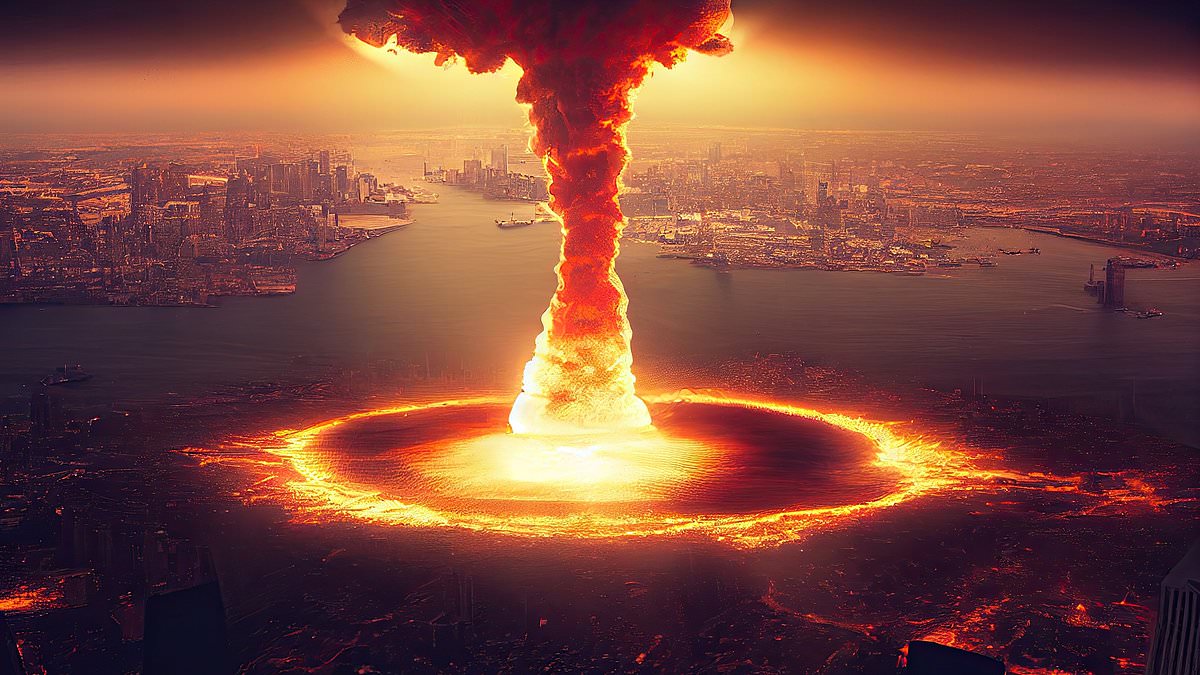Airlines have taken steps to ensure it will still be business as usual in the event of a nuclear war so passengers can continue to enjoy their holidays.
Experts are now working to change policies from the 1950s which would mean flights go ahead unabated following an atomic blast.
Currently, the rules force the grounding of all civil aircraft worldwide where there is a single nuclear detonation, as it is assumed this would lead to the outbreak of a third world war.
But bosses have scrutinised the restrictive policies saying ‘why should [planes] be grounded’ in the event of ‘nuclear detonation’.
It comes as the deployment of nuclear weapons is now thought be more likely to involve so-called tactical warheads used in a limited role on the battlefield.
And so the insurance industry is devising plans to allow the continuation of flights in regions removed from conflict zones.
The world’s largest aviation insurance broker, Gallagher, began interrogating the policy after Vladimir Putin threatened to deploy Russia’s atomic weapons against Ukraine in 2022.
And now, talks have heated up further amid the clash between India and Pakistan over Kashmir.
Nigel Weyman, senior partner at Gallagher, said: ‘Back when the wording was drawn up, it was assumed that any hostile detonation meant that it would all be over, Armageddon. But what they didn’t have in those days was tactical nuclear weapons that vary in size and impact.’
The latest nuclear warheads yield only a fraction of the explosive power compared with the bomb dropped on Hiroshima in 1945.
American B61 air-launched gravity bombs have a yield as low as 0.3 kilotons while the devastating Hiroshima bomb “Little Boy” carried 100kt for a single Trident II missile warhead.
Britain retired its last tactical nuclear weapons in 1998, though Russia is believed to have almost 2000.
And in 2023, North Korea unveiled what it claimed was a tactical weapon, while Pakistan’s Nasr missile can also carry a battlefield nuclear warhead.
Mr Weyman said: ‘Why should Air New Zealand be grounded in the event of a nuclear detonation in Europe that was quite minor?’
Under the broker’s plan, a select number of insurers would evaluate where airlines should be permitted to fly after a nuclear detonation.
The research is aided by analysis from security experts at risk-management specialists Osprey Flight Solutions.
A 15-strong group, which includes Allianz, the world’s largest insurer, would gather within four hours of a detonation.
Each carrier would then be given $1bn (£750m) per plane of war cover for passengers and third parties, compared with $2bn or more under existing policies.
But Mr Weyman said the cost of the scheme is less than the price of a cup of coffee per passenger.
It comes as airlines spent roughly $1.3bn (£980 million) on insurance premiums last year to cover about four billion passenger journeys.
Around 100 airlines have so far signed up to the plan.
But other insurance stipulations could put a spanner in the works including a ‘five-powers war clause’ that terminates cover in the event of a military clash between any of the UK, US, France, Russia and China.
